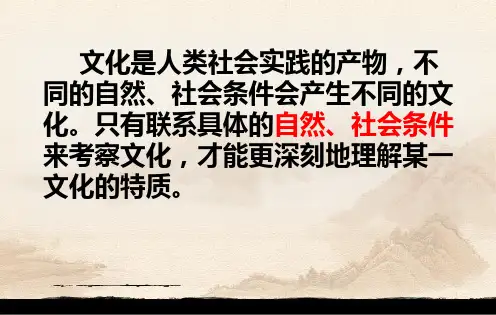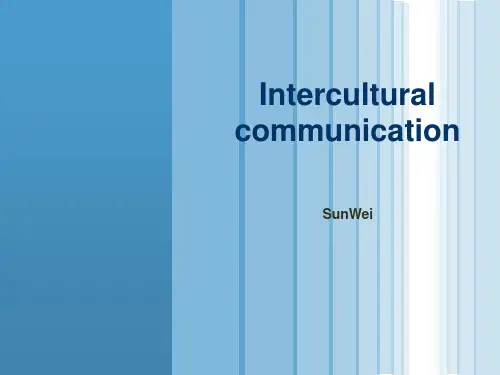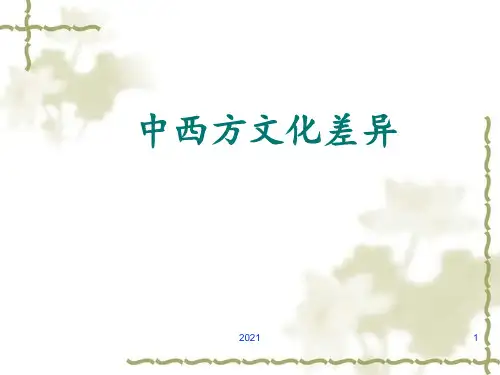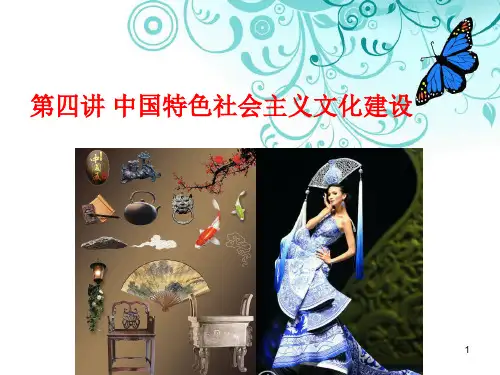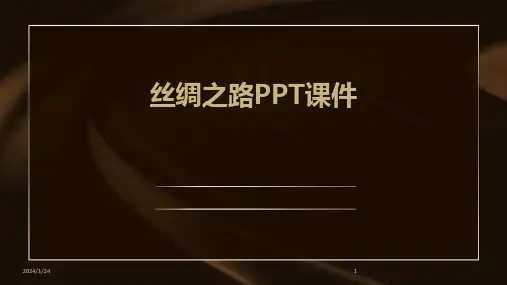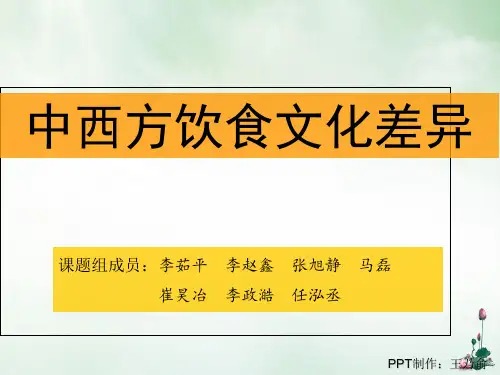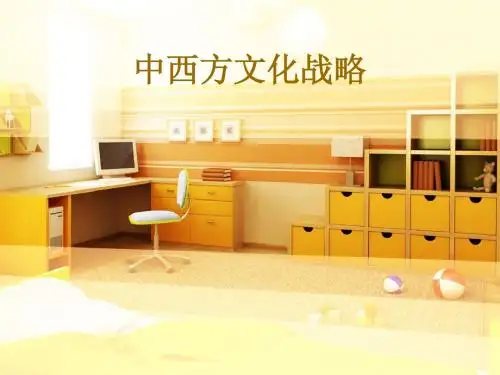比喻之二:散沙与散石。曾有人说:“中国人是一盘散沙。”吾以为 大谬不然。恰恰相反,西方的个人主义文化使其更像散沙。但西方的 一神论宗教和完善的法律可以把一堆散沙凝结成坚强的水泥块。
而中国人的一个集体,如家庭、同事、同学、朋友等有很高的同一性 与紧密性,不同的集体如一堆堆散石。如果没有适当的黏合剂,这些 散石头可能产生巨大的碰撞,形成所谓的窝里斗。如果碰上“圣人之 治”的时代,这些散石头合在一起,就如加了鹅卵石的水泥,比纯沙 构成的水泥具有更高的强度。
6.They didn’t praise him slightly. 他们大大地表扬了他。 7.That’s all I want to hear. 我已经听够了。 8.I wish I could bring you to see my point. 你要我怎么说你才能明白呢。 9.You really flatter me. 你让我受宠若惊。 10.He made a great difference. 有他没他结果完全不一样。
Food
clothes
music
literature language
views attitudes love preference
hatred habits customs
The Culture Onion 文化洋葱理论
In the outer layer: the symbols and material the way people are dressed (kimono in Japan) the language they speak (Chinese, English,…) the cars they drive the food they eat(dumplings, fast food, salad, ...) The houses they live in

